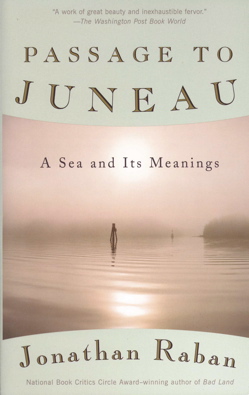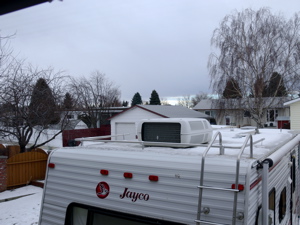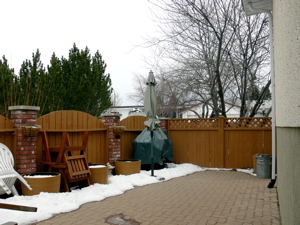Monday January 22, 2007 5:00 am Lethbridge Sunrise 8:17 Sunset 17:09 Hours of daylight: 8:52
A. Morning Musings
5:00 am It is +3 C at the moment with a high of +5 C forecast. Another windy day - at the moment the wind is 54 km/h with gusts to 68 km/h.
Here are the news.
CBC Headline: Pickton Trial Set to Open
This will be the one of the largest, and most publicised, murder trials in Canadian history. Many of the details are expected to be gruesome and horrific. The trial is for the murder of 6 women, but the actual number that he is believed to have killed is much higher. I would like to see this receive a little less attention, perhaps a lot less attention. We seem to be attracted to extreme stories, even though they are relatively unimportant in terms of their effect on most people. Certainly it must be a nightmare for families of the victims involved, but for the rest of us it is a case of macabre voyeurism. I am still bewildered by the expected length of the trial, estimated to be about a year. I would think it could be handled in a few weeks, if not less. I am afraid this story will be a headline for some time to come.
Canadian Headline: see above
Australian Headline: (from The Australian): Rains Nurture Hopes of an End to El Nino
Recent rains across central and south-eastern Australia with hopes that this will lead to an end to the drought that is one of the most severe in recent memory. I certainly hope that this proves to be the case. I cannot imagine how difficult the last few years have been for stations trying to survive the lack of water for crops and livestock.
Going over the books on my shelves yesterday, I had the good feeling of making progress since I retired. I am not buying many books and am focusing on playing catch-up, as I concentrate on reading those that I bought a few years ago and could not find time to complete. "Passage to Juneau" was one such book, as were the Virginia Woolf books. I must apply the same strategy to my non-fiction books.
Monday mornings are always nice as I begin the week with a cup at The Ugly Mug. But I will need a cup before then.
|
|
From rear window |
South patio |
Both images taken at noon |
B. Plan
| Immediate |
|
|
| Health |
Walk & exercise |
1 hr |
| Technology |
Begin reading "iPhoto" |
1 hr |
| |
Digital photography - learn about using the various manual settings |
1 hr |
| Model Trains |
Follow tutorial for 3rdPlanIt (Manual p. 8 - 13) |
1 hr |
| Literature |
Make notes for "Passage to Juneau" by Jonathan Raban |
1 hr |
| |
Begin reading "The Heart is an Involuntary Muscle" by Monique Proulx |
1 hr |
| Later |
|
|
| Chores |
Investigate water softeners for home |
|
| Technology |
Read manual for cell phone |
|
| |
Make notes for chap. 4 of "Switching to the Mac" |
|
| |
Burn backup of images onto DVD |
|
| |
Edit iPhoto images |
|
| Mathematics |
Read "Fearless Symmetry" chap 9: Elliptic Curves |
|
| Model Trains |
Add ground cover to oil refinery diorama |
|
| |
Continue assembly of coaling tower |
|
| |
Purchase DCC system |
|
| History |
Read Watson "Ideas" |
|
| Philosophy |
Read & make notes for "Breaking the Spell" |
|
| GO |
Complete reading "Lessons in the Fundamentals of Go" |
|
| Puzzles |
The Orange Puzzle Cube: puzzle #10 |
|
C. Actual/Note
|
|
Literature Notes |
5:50 am I finished reading "Passage to Juneau" by Jonathan Raban yesterday afternoon. Now to make a few notes. |
 link to back cover link to back cover
Some quotes:
- "The programs were aimed at elderly viewers with little or no experience of paints and brushes, and the words that cropped up most frequently in Ross's titles for his works - Serenity, Solitude, Golden, Quiet, Retreat, Hideaway, Seclusion, Lonely, Autumn, Winter - were all descriptive of the state of retirement itself." [p. 107]
- "In this fictional tempest, the steamer is going by the lead and making the correct signals, while the artist, bound to the mast, is going about his usual business with pencil and sketchpad. This is how the world is. We live with chaos as the encompassing condition of our lives. We learn to work through it. With luck, we emerge from it." [p. 187]
| These are the only sentences in the entire novel, other than quotes from historical journals, that are in italics. |
- "The Indians were equally impressed by the arts of the visitors - especially by the carved and painted figureheads on their ships, whose meaning and totemic power were much discussed. Interestingly, no one on the Vancouver expedition mentioned seeing a totem pole, nor is one shown in any of the midshipmen's drawings of native villages, though carved house-posts were observed almost everywhere. ... By the 1820's, totem poles were seen everywhere along the Inside Passage: a product of fur-trade wealth and leisure, iron chisels and gouges - and possibly the example of figureheads on white men's ships." [p. 197]
| Lovely. Seems like a strong argument to me. |
- "The point, surely, is that these compositions [of west coast native art] are infinitely amenable to interpretation, no version of which can be counted final and authoritative. With marvelous stylistic assurance and control, the Indian artists have rendered a world inherently fluid, fragmentary, elusive and chaotic. Look, it's a bear; look again, it's a halibut.This is nature as one meets it in the distorting mirror of the water." [p. 205]
| In just a few pages I have learned more about west coast native art than in all of the art books I have seen on this topic. |
- "The trouble is that the Indians' oral literature has been systematically eroded by several generations ... starting with the first late-Victorian collectors, who tended to flinch at the stories' bawdy relish for the details of sex and evacuation." [p. 215]
- "The world of these stories is turbulent and random: again and again, they show the Indians as creatures moving through a landscape full of powers - hapless babes in the malevolent wood." [p. 218]
- "Too often, Indian life on the Northweat coast was pictured as an idyll - the tribes living at one with nature, in a region of unparalleled abundance - until it was violated by the white intruders. Nothing in their own art or literature gave credence to that guilty, sentimental notion." [p. 219]
| Now the same comment applies to literature. This novel is packed with insightful commentary, much of it at variance with established scholarship. |
- "You were constantly made aware of your own physical insignificance by the girth of the fir, the rearing bulk of the grizzly, the crash of the whale, the massive turmoil of the tide." [p. 220]
| This is one of the main reasons why I like hiking in the mountains in Canada and watching the surf in Australia. |
SUMMARY of the session: This is a much more powerful book than one realizes!
|
|
D. Reflection
|



 link to
link to